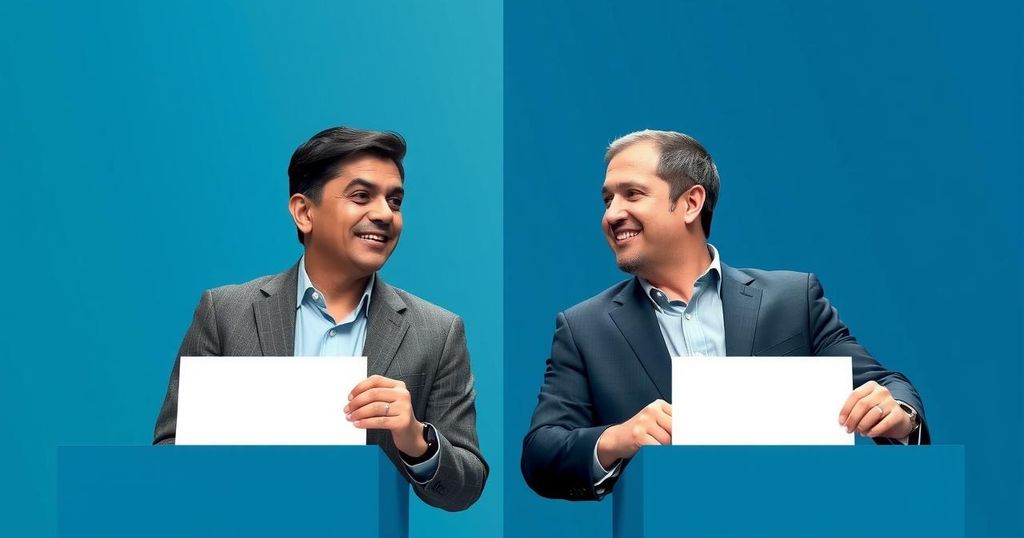Uruguay Election: Voters Decide Between Two Centrists in a Model Democracy

Uruguay is set to conduct a general election on October 29, 2024, where voters will choose between Álvaro Delgado of the National Party and Yamandú Orsi of the Frente Amplio coalition. The election occurs against a backdrop of political stability and consensus, with rising concerns about security and child poverty dominating the campaign. Alongside the presidential ballot, a referendum on social security reform will also be up for vote.
In the upcoming general election scheduled for Sunday, October 29, 2024, Uruguay will hold a pivotal moment in its political landscape as voters deliberate between two centrist candidates amidst a climate of relative political tranquility. The outgoing center-right incumbent, President Luis Lacalle Pou, who enjoys a strong approval rating of approximately 50%, is unable to seek re-election due to constitutional term limits. Thus, the National Party will be represented by Álvaro Delgado, a former chief of staff and an established politician, while the opposition Frente Amplio coalition will be represented by Yamandú Orsi, a former mayor with a center-left political stance. Polling indicates a competitive atmosphere, with Orsi leading at approximately 44 percent but lacking the outright majority necessary to avoid a runoff if he fails to surpass the required threshold. Notably, both candidates are largely aligned on crucial matters such as child poverty and public safety, reflecting Uruguay’s status as one of Latin America’s most stable democracies, contrasting sharply with the political turbulence observed in neighboring nations such as Argentina and Brazil. Additionally, the election will not solely determine the presidency, as citizens will also select a new vice president and members of the parliament. A constitutional referendum regarding a proposal to reform the country’s social security system will take place concurrently, prompting considerable debate over its potential implications.
Uruguay has long been recognized as a model of stable democracy in South America, renowned for its political civility and effective governance. Its political environment is often characterized by consensus among the major parties, which have generally aligned on economic and social issues, allowing for steady economic growth and moderate changes in governance. Amidst this context, current electoral dynamics exhibit a preference for continuity over radical shifts, with the electorate expressing satisfaction towards the business-friendly initiatives of the current administration. Furthermore, the upcoming elections have garnered attention not just for the presidential results but also for the accompanying social security reform proposals, illustrating the complex interplay between political sentiment and socio-economic issues in Uruguay.
In conclusion, Uruguay’s upcoming elections encapsulate a pivotal moment for its political landscape, featuring two centrist candidates who reflect a broad consensus on major issues facing the nation. With rising concerns about security and child welfare dominating voter sentiment, the candidates’ approaches will likely have a lasting impact on Uruguay’s trajectory. The electoral process is underscored by a contrasting atmosphere of calm and stability when compared to its regional neighbors, further solidifying Uruguay’s reputation as an exemplar of democratic governance in Latin America. Regardless of the electoral outcome, the importance of this vote extends beyond the presidency, potentially influencing key social policies and national discourse in the coming years.
Original Source: apnews.com







